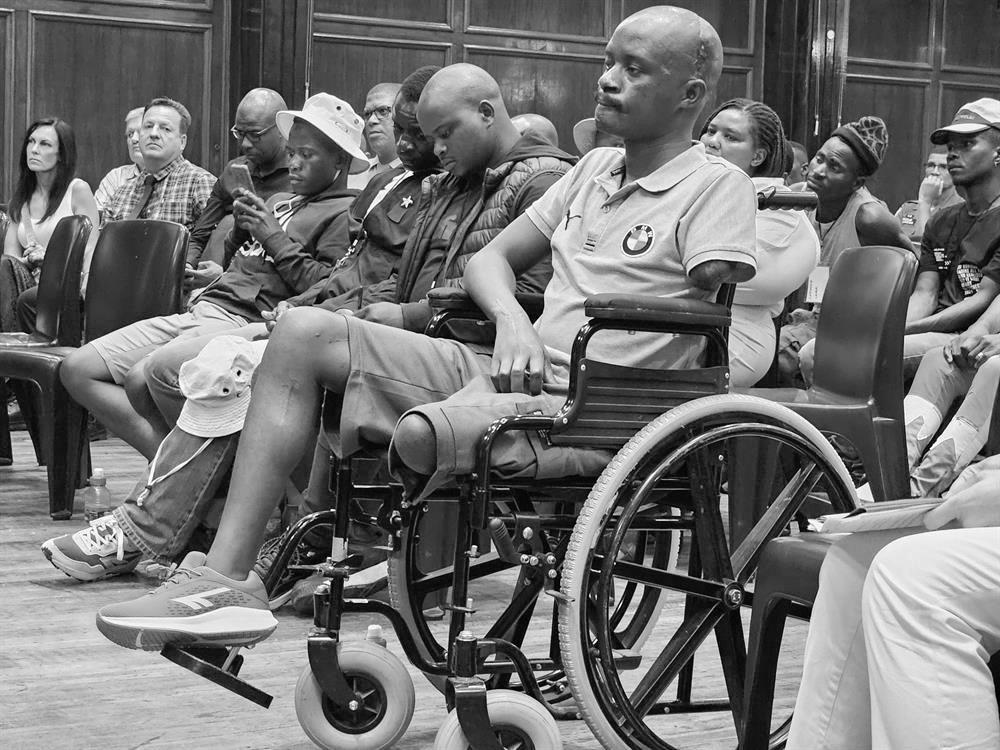GEORGE NEWS - As the community continues to reel from the devastating building collapse on Victoria Street on 6 May 2024, survivors and the families of the deceased are beginning to seek justice and compensation for this tragedy that has claimed more than 30 lives and injured dozens.
Public interest lawyer George Kahn, who also specialises in human rights and health and safety law, and who is assisting several victims and their families, has shed some light on the complex legal terrain ahead.
According to him, a variety of legal avenues are available for both documented and undocumented victims - and their rights are protected under South African law, regardless of immigration status.
"Their recourse is identical," Kahn explains. "Whether they are South African citizens or undocumented immigrants, their legal rights under workmen's compensation, consumer protection or civil liability laws remain intact."
While undocumented immigrants are often assumed to have limited recourse, legal precedent has confirmed their right to compensation for services rendered, as well as protection under civil law. Case law such as Southern Sun Hotel Interests v CCMA and Others confirms the absence of a work permit does not nullify an employee's entitlement to wages or other benefits.
Can victims sue?
A common question arising is who can be held responsible for the disaster - the construction company, the developer, the municipality, or others?
Kahn says the answer lies largely in the Compensation for Occupational Injuries and Diseases Act (Coida), which generally prohibits workers from suing their direct employers. However, he outlines three exceptions, one of which may apply in this case: if the workers were employed by a third-party company or labour broker rather than the primary contractor responsible for site safety. "If this third-party employment is proven, it may open the door to civil litigation against the main contractor or another liable party," says Kahn. "In such cases, fault doesn't have to be proven - the mere violation of safety regulations that leads to injury can be enough for strict liability."
Potential defendants could also include service providers, engineers or developers - depending on the outcomes of ongoing investigations.
Municipal liability, Kahn adds, would depend on whether a clear and material failure on the city's part contributed to the incident. "There needs to be a direct and substantial link between a party's conduct and the harm suffered."
Under the Consumer Protection Act (CPA), injured workers may also pursue claims against manufacturers or service providers - even though they weren't the end-users of the product or service. The CPA's provisions include strict liability, which means companies can be held responsible even if they weren't negligent.
 Shadrack Maine, lost both his left limbs in the building disaster. Photo: Alida de Beer
Shadrack Maine, lost both his left limbs in the building disaster. Photo: Alida de Beer
Coida and state support
For workers formally employed at the time of the incident, Coida offers a structured form of compensation for medical expenses and loss of income. This includes temporary and permanent disability benefits based on the severity of injuries.
For example, someone who lost a leg around the knee could be awarded a disablement score of 35-45%, while the total loss of mobility (e.g. wheelchair-bound individuals) qualifies for 100% disablement and a lifelong pension.
If the impairment is over 31%, the worker qualifies for a pension. Anything below that is compensated through a lump sum, calculated at one month's wages for every 2% of disability. Widows of workers who died are also entitled to a lifelong pension equal to 40% of three-quarters of the deceased worker's earnings.
"Coida provides for economic compen-sation, but not for pain and suffering or loss of quality of life," Kahn explains. "To claim those general damages - the so-called 'sorry money' - victims may need to pursue additional civil litigation against liable third parties."
He adds that Coida may also cover the costs of prosthetics, rehabilitation and psychological counselling. Furthermore, workers are still entitled to leave pay-outs and severance pay under the Basic Conditions of Employment Act (BCEA), and occupational injury leave does not affect their annual or sick leave.
A long road ahead
While the full investigation into the George building collapse continues, Kahn stresses the importance of identifying the chain of responsibility. "Legal claims require proof of a duty of care and a link between that duty and the harm caused," he says.
As survivors face a long road to recovery, the potential for compensation through multiple avenues offers a measure of hope - and underscores the importance of rigorous investigations to ensure justice is served.
"In law," says Kahn, "the principle is clear: where there is a right, there must be a remedy."
 Ivaldo Macamo and Vuyokazi Singama in their wheelchairs with Macamo's girlfriend, Sibahle Dumekhaya and their son. Photo: Alida de Beer
Ivaldo Macamo and Vuyokazi Singama in their wheelchairs with Macamo's girlfriend, Sibahle Dumekhaya and their son. Photo: Alida de Beer
‘We bring you the latest Garden Route, Hessequa, Karoo news’
















